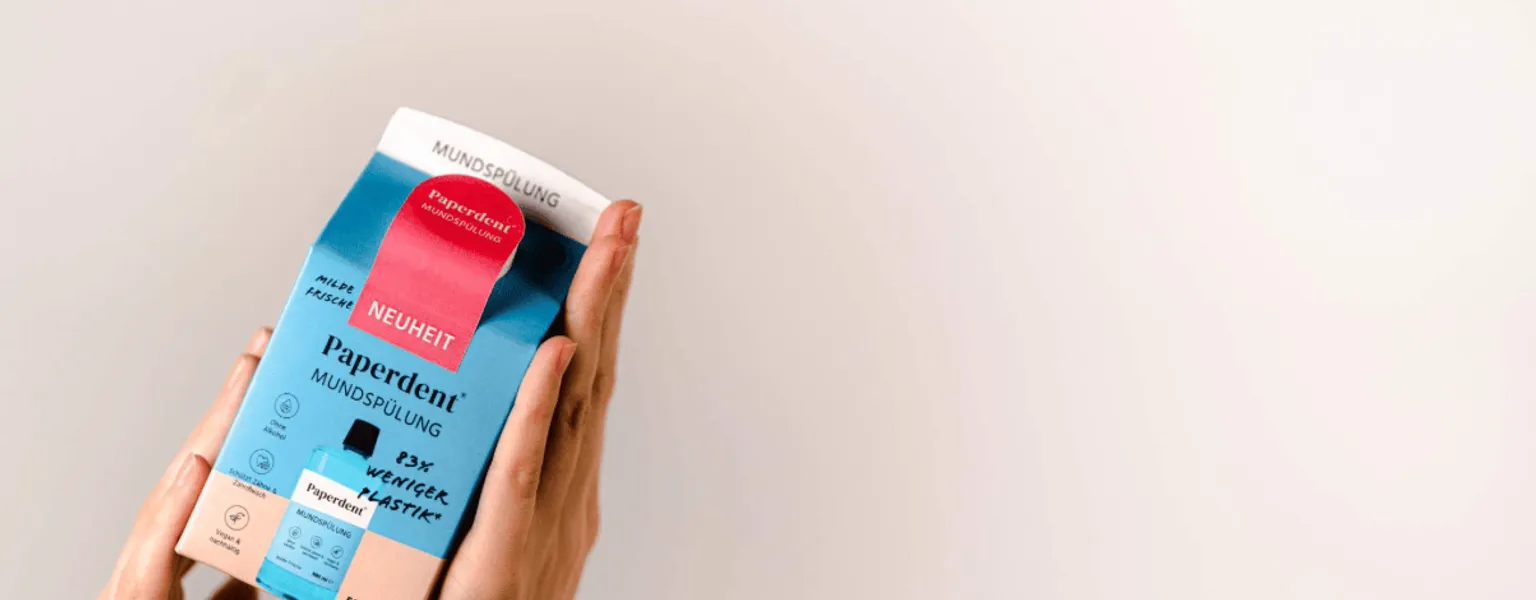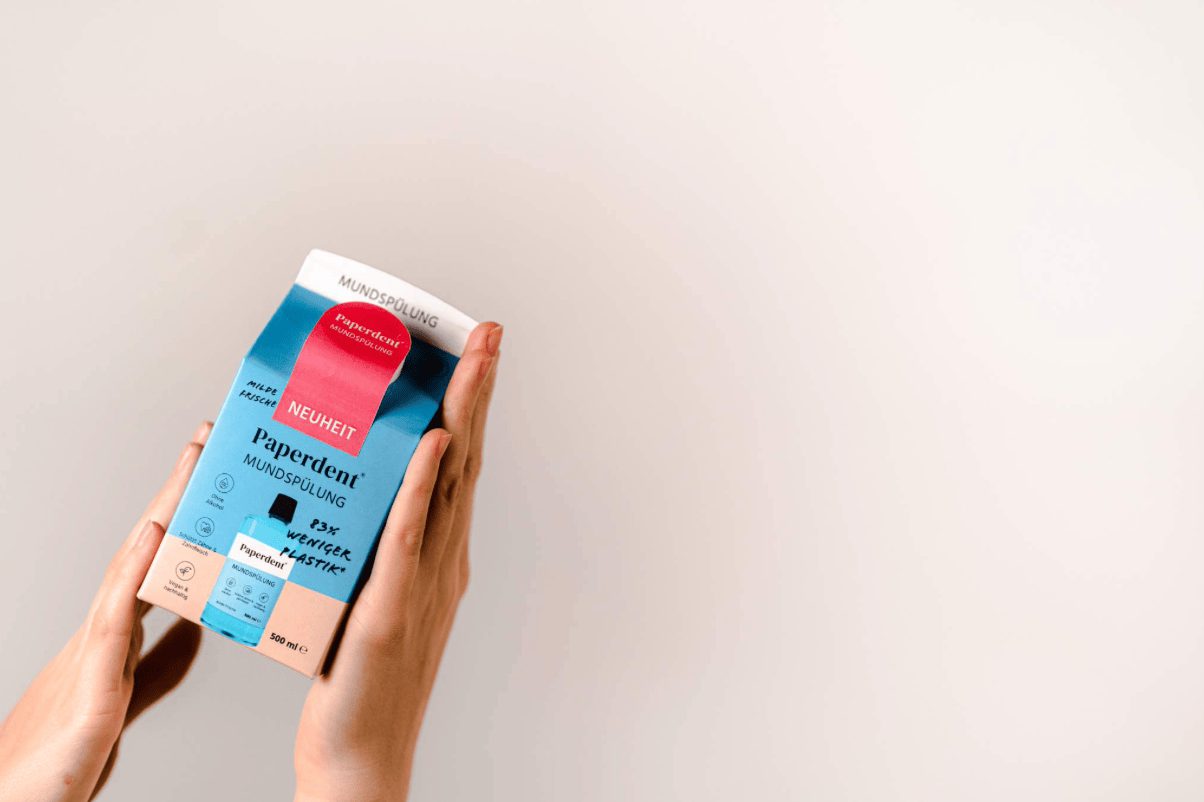Eco-friendly oral care: Introducing sustainable paperboard packaging for mouthwash

Sustainability
German oral hygiene brand Paperdent has joined forces with Elopak to introduce its range of vegan, alcohol-free mouthwash packaged in environmentally friendly cartons made from sustainably sourced paperboard.
Setting a new industry standard, Paperdent is the first mouthwash brand to adopt Elopak's D-PAK™ cartons, effectively reducing the plastic content in its packaging by more than 80% compared to traditional mouthwash packaging.
The 500 ml D-PAK™ carton is manufactured using paperboard derived from responsibly managed forests and is fully recyclable, aligning with Paperdent's commitment to sustainability. Furthermore, the carton is carbon neutral, minimising its environmental impact.
With a dedicated focus on consumer education, Paperdent has utilised one side of the carton to highlight the numerous benefits of this eco-friendly packaging solution. Since May, the mouthwash has been available online as well as in select pharmacies and supermarkets across Germany and Austria.
The partnership between packaging specialist Elopak and Luoro, Paperdent's parent company, commenced less than a year ago. Yet, the collaboration has yielded impressive results, with the first mouthwash packaged in a durable and sustainable carton ready to hit the market.

To ensure quality and efficiency, the mouthwash is filled directly by Elopak at their state-of-the-art test facility in Terneuzen, Netherlands. This facility is specifically designed for small-scale filling and initial market tests in the non-food segment, making it an ideal solution for small-scale producers and start-ups alike.
Dr Louis Bahlmann, CEO and co-founder of Luoro, explains: We chose Elopak’s carton packaging for various reasons. On the one hand, because of the significant reduction in plastic compared to a conventional plastic bottle. On the other hand, because this packaging is mainly made from wood, a renewable raw material, and therefore has a low carbon footprint. And we were also impressed by the recyclability.
Related News
-
Business
Unveiled: 'World's first' paperboard tube with Fibre-Based Closure
-
Sustainability
European carton industry achieves 24% reduction in carbon footprint
-
Sustainability
Robinsons unveils super strength squash in plant-based carton
-
Sustainability
Absolut Vodka trials eco-friendly paper bottles in Tesco stores
-
Supplier News
Disney and Tetra Pak team up to bring magic to milk cartons




